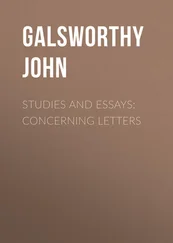§ 9. But this is not, I think, usual in any of our Ideas , but those received by Sight : Because Sight, the most comprehensive of all our Senses, conveying to our Minds the Ideas of Light and Colours, which are peculiar only to that Sense; and also the far different Ideas of Space, Figure, and Motion, the several varieties whereof change the appearances of its proper Object, viz . Light and Colours, we bring our selves by use, to judge of the one by the other. This in many cases, by a settled habit, in things whereof we have frequent experience, is performed so constantly, and so quick, that we take that for the Perception of our Sensation, which is an Idea formed by our Judgment; so that one, viz . that of Sensation, serves only to excite the other, [160]and is scarce taken notice of it self; as a Man who reads or hears with attention and understanding, takes little notice of the Characters, or Sounds, but of the Ideas , that are excited in him by them.
[…]
O f Retention
§ 1. THE next Faculty of the Mind, whereby it makes a farther Progress towards Knowledge, is that which I call Retention , or the keeping of those simple Ideas , which from Sensation or Reflection it hath received. This is done two ways. First, by keeping the Idea , which is brought into it, for some time actually in view, which is called Contemplation .
§ 2. The other way of Retention is the Power to revive again in our Minds those Ideas , which after imprinting have disappeared, or have been as it were laid aside out of Sight: And thus we do, when we conceive Heat or Light, Yellow or Sweet, the Object being removed. This is Memory , which is as it were the Store-house of our Ideas. For the narrow Mind of Man, not being capable of having many Ideas under View and Consideration at once, it was necessary to have a Repository, to lay up those Ideas , which at another time it might have use of. But our Ideas being nothing, but actual Perceptions in the Mind, which cease to be any thing, when there is no perception of them, this [162] laying up of our Ideas in the Repository of the Memory, signifies no more but this, that the Mind has a Power, in many cases, to revive Perceptions, which it has once had, with this additional Perception annexed to them, that it has had them before. And in this Sense it is, that our Ideas are said to be in our Memories, when indeed, they are actually no where, but only there is an ability in the Mind, when it will, to revive them again; and as it were paint them anew on it self, though some with more, some with less difficulty; some more lively, and others more obscurely. And thus it is, by the Assistance of this Faculty, that we are said to have all those Ideas in our Understandings, which though we do not actually contemplate, yet we can bring in sight, and make appear again, and be the Objects of our Thoughts, without the help of those sensible Qualities, which first imprinted them there.
[…]
§ 6. […] concerning the Ideas themselves, it is easie to remark, That those that are oftenest refreshed (amongst which are those that are conveyed into the Mind by more ways than one) by a frequent return of the Objects or Actions that produce them, fix themselves best in the Memory , and remain clearest and longest there; and therefore those, which are of the original Qualities of Bodies, viz. Solidity , Extension , Figure , Motion , and Rest , and those that almost constantly affect our Bodies, as Heat and Cold ; and those which are the Affections of all kinds of Beings, as Existence , Duration , and Number , which almost every Object that affects our Senses, every Thought which employs our Minds, bring along with them: These, I say, and the like Ideas , are seldom quite lost, whilst the Mind retains any Ideas at all.
[164]§ 7. In this secondary Perception, as I may so call it, or viewing again the Ideas , that are lodg’d in the Memory , the Mind is oftentimes more than barely passive , the appearance of those dormant Pictures, depending sometimes on the Will. The Mind very often sets it self on work in search of some hidden Idea , and turns, as it were, the Eye of the Soul upon it; though sometimes too they start up in our Minds of their own accord, and offer themselves to the Understanding; and very often are rouzed and tumbled out of their dark Cells, into open Day-light, by some turbulent and tempestuous Passion; our Affections bringing Ideas to our Memory, which had otherwise lain quiet and unregarded. This farther is to be observed, concerning Ideas lodg’d in the Memory, and upon occasion revived by the Mind, that they are not only (as the Word revive imports) none of them new ones; but also that the Mind takes notice of them, as of a former Impression, and renews its acquaintance with them, as with Ideas it had known before. So that though Ideas formerly imprinted are not all constantly in view, yet in remembrance they are constantly known to be such, as have been formerly imprinted, i. e. in view, and taken notice of before by the Understanding.
§ 8. Memory , in an intellectual Creature, is necessary in the next degree to Perception. It is of so great moment, that where it is wanting, all the rest of our Faculties are in a great measure useless: And we in our Thoughts, Reasonings, and Knowledge, could not proceed beyond present Objects, were it not for the assistance of our Memories […].
[…]
Of Discerning, and other Operations of the Mind
§ 1. ANOTHER Faculty, we may take notice of in our Minds, is that of Discerning and distinguishing between the several Ideas it has. It is not enough to have a confused Perception of something in general: Unless the Mind had a distinct Perception of different Objects, and their qualities, it would be capable of very little Knowledge […].
[…]
§ 3. To the well distinguishing our Ideas , it chiefly contributes, that they be clear and determinate : And when they are so, it will not breed any confusion or mistake about them, though the Senses should (as sometimes they do) convey them from the same Object differently, on different occasions, and so seem to err. For though a Man in a Fever should from Sugar have a bitter taste, which at another time would produce a sweet one; yet the Idea of Bitter in that Man’s Mind, would be as clear and distinct from the Idea of Sweet, as if he had tasted only Gall. […]
§ 4. The COMPARING them one with another, in respect of Extent, Degrees, Time, Place, or any other Circumstances, is another operation of the Mind about its Ideas , and is that upon which depends all that large tribe of Ideas , comprehended under Relation ; which of how vast an extent it is, I shall have occasion to consider hereafter.
[…]
§ 6. The next Operation we may observe in the Mind about its Ideas , is COMPOSITION ; whereby it puts together several of those simple ones it has received from Sensation and Reflection, and combines them into complex ones. Under this [168]of Composition, may be reckon’d also that of ENLARGING ; wherein though the Composition does not so much appear as in more complex ones, yet it is nevertheless a putting several Ideas together, though of the same kind. Thus by adding several Unites together, we make the Idea of a dozen; and putting together the repeated Ideas of several Perches, we frame that of a Furlong.
Читать дальше












